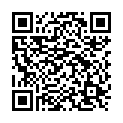|
|
|
| Module code: DFBME-302 |
|
|
4VU (4 hours per week) |
|
4 |
| Semester: 3 |
| Mandatory course: yes |
Language of instruction:
German |
Assessment:
Written exam (50%) + term paper with presentation (25%) + tests (25%)
[updated 04.12.2020]
|
DFBGE-060 (P610-0027) Electrical Engineering - Renewable Energy and System Technology, Bachelor, ASPO 01.10.2018
, semester 3, mandatory course
DFBEES-302 (P610-0027) Electrical Engineering - Renewable Energy and System Technology, Bachelor, ASPO 01.10.2019
, semester 3, mandatory course
DFBGE-060 (P610-0027) Electrical Engineering, Bachelor, ASPO 01.10.2015
, semester 3, mandatory course
DFBGM308 Mechanical Engineering, Bachelor, ASPO 01.10.2018
, semester 3, mandatory course
DFBME-302 (P610-0316) Mechanical Engineering, Bachelor, ASPO 01.10.2019
, semester 3, mandatory course
DFBME-302 (P610-0316) Mechanical Engineering, Bachelor, ASPO 01.10.2024
, semester 3, mandatory course
|
60 class hours (= 45 clock hours) over a 15-week period.
The total student study time is 120 hours (equivalent to 4 ECTS credits).
There are therefore 75 hours available for class preparation and follow-up work and exam preparation.
|
Recommended prerequisites (modules):
None.
|
Recommended as prerequisite for:
|
Module coordinator:
Dr. Julia Frisch |
Lecturer: Dr. Julia Frisch
[updated 09.08.2020]
|
Learning outcomes:
After successfully completing this module, students will:
- have attained language skills at the lower and intermediate C1 level of the Common European Framework of Reference for Languages (CEFR),
Skills: After successfully completing this module, students will be able to:
understand the global and detailed information in difficult texts pertaining to concrete and abstract topics,
follow factually complex technical discussions in their own field of expertise,
communicate using a wide range of linguistic means allowing them to conduct conversations with native speakers in an idiomatic and communicative manner,
express themselves in writing on a wide range of general and selected scholarly topics,
hold job and subject-oriented presentations and prepare the corresponding written materials in a linguistically appropriate manner and, to a great extent, error-free
Competences: After successfully completing this module, students will:
- have mastered the grammar relevant for the above skills, the basic general vocabulary, the advanced French vocabulary and some French business vocabulary,
- be sensitive to the intercultural characteristics of countries belonging to the francophone world and thus, be able to successfully manage important communication situations in daily (business) life and
- be capable of embracing the intercultural differences of countries belonging to the francophone world and verbally interact there successfully.
[updated 04.12.2020]
|
Module content:
Maintain the extensive general French vocabulary acquired in previous levels of learning,
Advanced acquisition of an extensive vocabulary in an engineering and technical environment,
Advanced English grammar and awareness of its potential for use in technical language,
Pronounced communication skills with regard to scientific language in order to take part in discussions, hold presentations and write texts belonging to the most important scientifically-relevant text types on a high level,
Improve reading and listening comprehension skills through appropriate exercises.
[updated 04.12.2020]
|
Teaching methods/Media:
Use a wide range of media: television and video, radio, magazines and newspapers, computer-based interactivity
Partner work, group work and role playing
Presentations and short talks by students
Presentations by the lecturer
Plenary and group discussions
The goal is to enable authentic foreign language communication.
[updated 04.12.2020]
|
Recommended or required reading:
Teaching materials compiled by the lecturer
[updated 04.12.2020]
|

